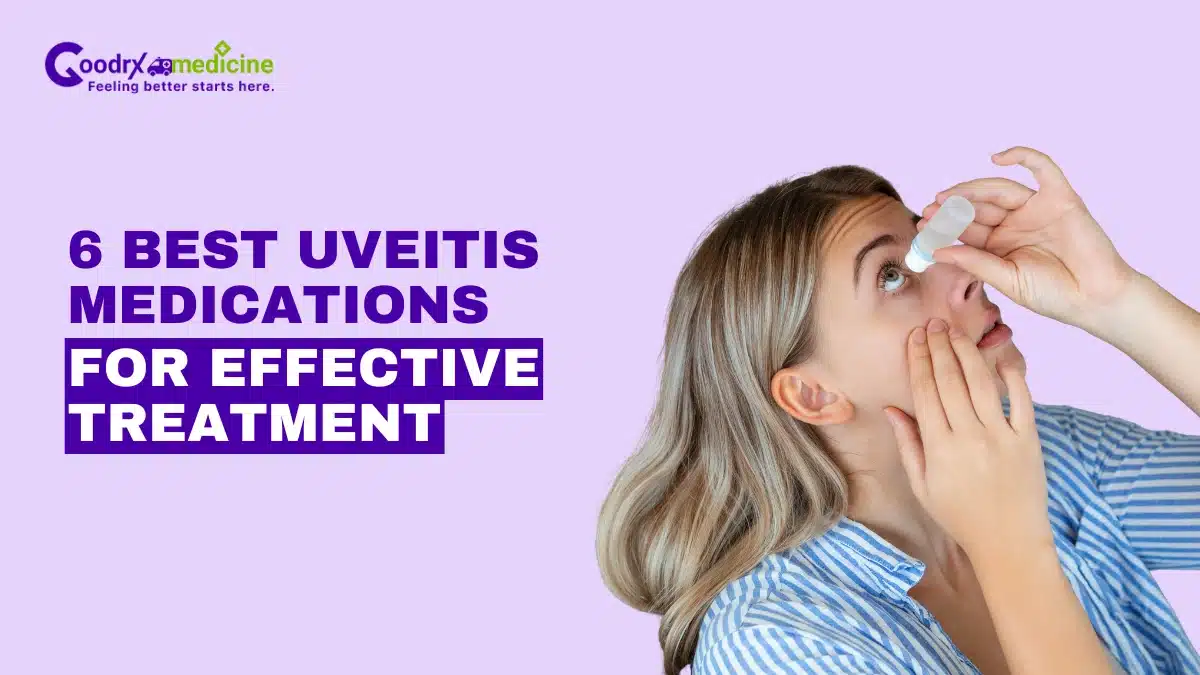Uveitis is inflammation of the uvea, which is the middle layer of the eye that supplies blood to the retina. The condition can cause pain, redness, blurred vision, and sensitivity to light. If left untreated, it may lead to Glaucoma, Cataracts, or even permanent blindness.
Since Uveitis can appear suddenly or develop gradually, medicines are vital for treating inflammation, easing discomfort, and preserving vision. The best Uveitis medications are critical in managing this potentially sight-threatening condition.
From time-tested corticosteroid eye drops to modern biologic agents, the proper medication depends on the type, severity, and underlying cause of Uveitis. This article explores the best available therapies, how long treatment usually lasts, and when you should see an eye doctor for timely help.
Types of Uveitis medications
Different classes of medicines are prescribed to manage Uveitis, depending on whether the inflammation is mild, severe, or recurrent.
Save up to 90% on your medicine bills
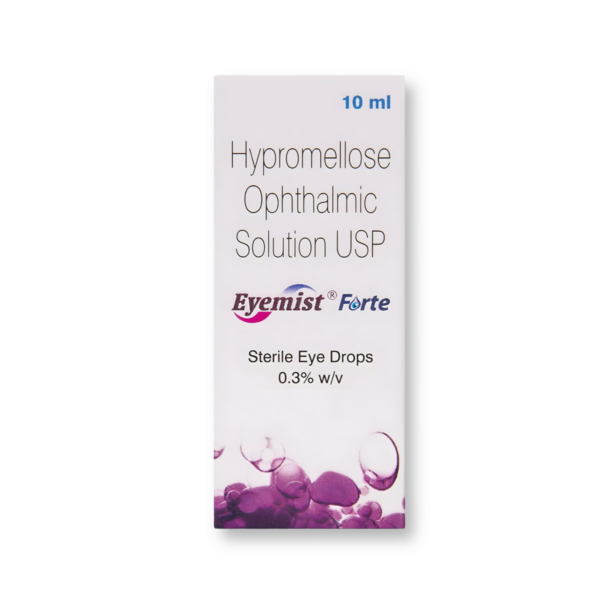
Eyemist Forte 10 ml
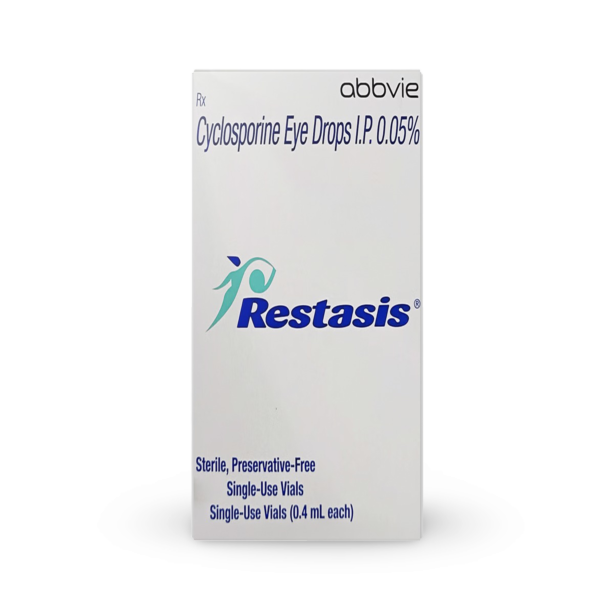
Restasis 0.05% Ophthalmic Emulsion 0.4ml
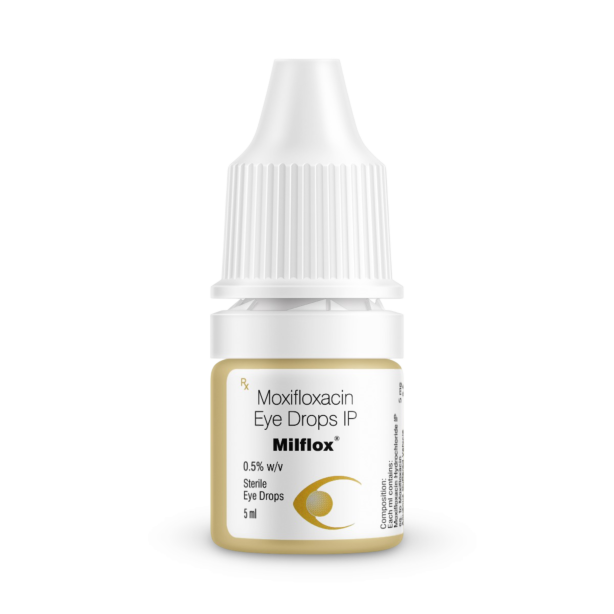
Milflox 0.5% 5 ml
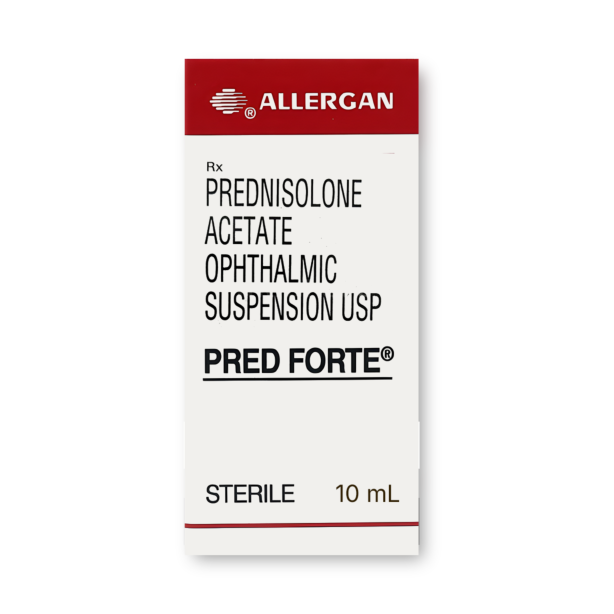
Pred Forte 10 ml
1. Corticosteroids
They are the first-line treatment for almost all types of Uveitis. Corticosteroids work by calming the body’s immune response, which reduces swelling, redness, and pain in the eye. In simple terms, they block the release of natural chemicals that cause inflammation, helping protect the eye from long-term damage. Commonly used medicines include Prednisone, Prednisolone, and Dexamethasone.
2. Immunosuppressive medicines
For chronic or steroid-resistant cases, medication like Methotrexate, Azathioprine, Cyclosporine, and Mycophenolate Mofetil is used. They help reduce dependency on steroids while offering longer-term inflammation control.
Though initially developed as an antimalarial, Hydroxychloroquine is also used in certain autoimmune-related Uveitis cases, such as Lupus. It works as an immunomodulator in these situations by calming the overactive immune system rather than fighting infection.
3. Biologic agents
Biologics such as Adalimumab and Infliximab target and block the protein TNF-alpha that causes inflammation. They are particularly useful in severe forms of Uveitis, often linked to autoimmune diseases. Newer biologics and Janus Kinase (JAK) inhibitors are under study and showing promising results in resistant cases.
4. Anti-infective drugs
If an infection causes Uveitis, medicines are selected based on the microorganism:
- Antibiotics for bacterial eye infections
- Antivirals such as Acyclovir for viral Uveitis
- Antifungals like Fluconazole for fungal causes
5. Cycloplegic agents
Cycloplegics such as Atropine or Cyclopentolate are often prescribed for Anterior Uveitis. They do not directly reduce inflammation but help relieve pain, relax the eye muscles, and prevent Synechiae (adhesions between the iris and lens).
6. Non-steroidal Anti-Inflammatory Drugs (NSAIDs)
Options like Indomethacin or topical Nepafenac may be used in mild or recurrent Uveitis, especially when tapering steroids. They are also beneficial in autoimmune-related Uveitis cases linked with joint pain or Spondyloarthropathies (a group of inflammatory diseases affecting the spine and joints).
Route of administration
The best type of Uveitis medication and the route of administration can depend on the severity of infection, location of inflammation, and patient response. Common options include:
- Eye drops: They are usually the first choice for Anterior Uveitis, providing quick local relief.
- Oral tablets or capsules: They are used when inflammation is widespread or recurrent.
- Injections: For resistant cases, options like periocular (into tissue surrounding the eye), intravitreal (into the vitreous humor), subcutaneous (into the skin), or intravenous (into the vein) injections deliver higher medicine concentrations directly to the eye or system.
- Implants: Long-acting devices placed in the eye that steadily release medicine over months for chronic Uveitis.
How long does Uveitis treatment last?
The duration of Uveitis treatment depends on the type and severity. Some patients only need eye drops for a few weeks, while others with chronic or recurrent Uveitis may continue immunosuppressants or biologics for years.
Doctors usually begin with a higher dose and gradually taper medicines to prevent relapse. Because flare-ups are unpredictable, close medical monitoring is necessary.
When to see a doctor?
You should visit an ophthalmologist promptly if you notice symptoms like:
- Sudden eye pain or redness
- Blurred or cloudy vision
- New floaters or flashes of light
- Sensitivity to light
- Recurrence of symptoms after stopping medication
Delaying medical care can make Uveitis harder to treat and increase the chances of permanent vision loss.
Conclusion
The best Uveitis medications reduce inflammation, prevent recurrence, and protect eyesight. Corticosteroids remain the backbone of therapy, while immunosuppressants and biologics expand treatment alternatives for resistant or complex cases.
Anti-infective medicines are crucial when Uveitis has a microbial trigger or cause. Ongoing research into biologics and JAK inhibitors promises even safer and more targeted therapies in the future. Since treatment length varies from weeks to years, regular follow-ups and timely dose adjustments are essential.
Ignoring Uveitis or self-medicating can lead to irreversible vision loss, but with proper medical supervision and the right medicines, most patients can maintain stable sight and quality of life.

Frequently Asked Questions
Can Uveitis medications have side effects?
Yes, side effects vary by the type of medication. For example, long-term corticosteroid use may increase the risk of Glaucoma, Cataracts, or High Blood Pressure. Immunosuppressants can affect the liver, kidneys, or immune system, while biologics may increase infection risk. Regular monitoring and follow-up with your ophthalmologist are essential.
Can Uveitis medications affect pregnancy?
Yes, certain medicines, like Methotrexate and Mycophenolate Mofetil, should be avoided during pregnancy. If you are pregnant, doctors may switch to safer alternatives, such as corticosteroids or specific biologics. So, it is vital to inform them.
Do diet or lifestyle choices influence Uveitis medication results?
Yes, while medications are the main line of defense, a healthy lifestyle supports recovery. Reducing stress, avoiding smoking, and maintaining regular medical care can enhance medication effectiveness and improve eye health.
Can Uveitis treatment be different for children and adults?
Yes, children often require lower doses and closer monitoring to avoid complications in growth and vision development. Pediatric Uveitis specialists usually handle such cases and determine the suitable Uveitis treatment.
When referencing outside resources, GoodrxMedicine always provides full citations. To learn more about the measures we use to maintain the quality of our content, please review our Content Information Policy.



